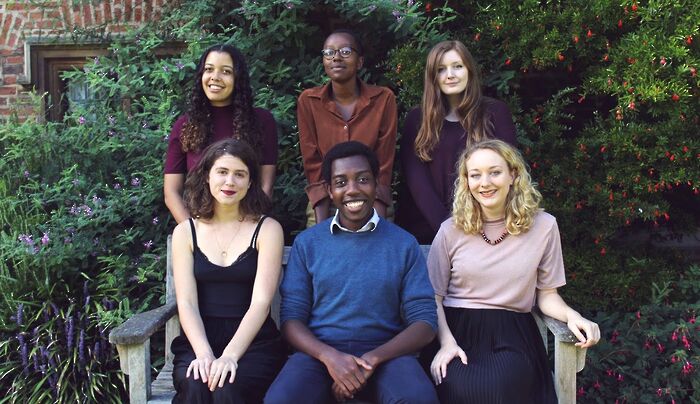The National Student Survey is damaging for our education system
Making the argument against the National Student Survey, Matt Kite and Martha Krish implore students not to be misled by the claims made in favour of the survey

Students should not fill in the National Student Survey (NSS) because we must refuse to be complicit in reforms that will damage our education system. The NSS is bad for teaching quality, could be used to raise fees, and continues to wear down the idea that education should be a public good, not simply a commodity that students buy as an entry fee for graduate employment.
The government’s current agenda for universities was announced in a white paper called Success as a Knowledge Economy, written not by the Department for Education but by the Business Department. It explicitly aims to create a competitive market in higher education, where students are customers and an education is a product. One part of that is the creation of the Teaching Excellence Framework (TEF), a system designed to rank and create competition between universities. It uses metrics including drop-out rates, graduate employment statistics, and results from the NSS. TEF was first announced alongside a promise to link performance with funding, persuading universities to participate in the reforms with the promise that if they did well on TEF they would be allowed to charge higher fees.
“In reality, it will only be used to allow the government to keep pushing an agenda that will be bad for us all”
Last year NUS and universities across the country coordinated a national boycott of the NSS, to oppose and to obstruct those changes. At 12 universities, including Cambridge, that boycott was successful enough that the NSS results were invalidated due to low response rates and didn’t count towards TEF. The boycott was mentioned in the House of Lords discussion of the Higher Education Bill and led to concessions from the government, with a delay on differentiated fees between universities, and no link between TEF and fees this year.
The objections to participation in the NSS last year still hold true. There has been no guarantee that the temporary freeze on tuition fees will continue or that the link between NSS, TEF and fees will not exist in the long term. In fact, there is every reason to believe that the upcoming Funding Review will reinstate that link. Removing the cap on tuition fees so that universities can compete on price as well as reputation is at the heart of the government’s long-term plan; we should not be mollified by temporary delaying tactics aimed at pushing opposition into the long grass. The TEF will use results from the NSS over three years, so building on the success of last year’s boycott is the only way to ensure that Cambridge students’ views are not co-opted as part of this agenda.
Boycotting the NSS remains one of our best opportunities to make a clear statement against the direction of higher education which is becoming increasingly inaccessible and elitist. This comes through in the use of NSS results, which show racial and gendered bias, and produce data which is a blunt instrument that does a poor job of describing the actual experiences of students. Researchers at the University of Reading found that BME lecturers are rated consistently worse on the survey, which they said indiscriminately reproduces the biases of respondents.
Universities obsess over how they perform on each of the NSS questions, forcing departments that perform poorly on particular metrics to waste time and scarce resources improving their scores on a questionnaire which often does not reflect students’ views or priorities accurately. Pressure from metrics designed to measure grade inflation, for example, gives departments a disincentive to tackle racial attainment gaps or welfare-related underperformance because of the risk that solving those pressing problems would damage their statistics. The Royal Statistical Society told the government it was “not aware that there is any evidence of a statistical association” between TEF and NSS, and that NSS results punish innovative teaching even when it works well.
At Cambridge we have an unusual power to make a statement. Our actions attract national attention that is disproportionate to the size of our institution and no-one need worry that unpublished NSS results will cause significant damage to Cambridge’s reputation as a leading university. CUSU has contact with many student unions that oppose TEF, and that wish they could boycott the NSS, but that fear having their funding cut if they do. This makes it especially important that we use this opportunity to stand up for an education system for everyone.
We hope that students will continue to ignore emails asking them to fill in the survey, and not be fooled by advertising claiming that the NSS offers students a real opportunity to “shape the future” of higher education. In reality, it will only be used to allow the government to keep pushing an agenda that will be bad for us all. We encourage students to join with those at Oxford, UCL, SOAS and others nationally who are refusing to have their data used in changes that we should all oppose
 News / Uni members slam ‘totalitarian’ recommendation to stop vet course 15 January 2026
News / Uni members slam ‘totalitarian’ recommendation to stop vet course 15 January 2026 Science / Why smart students keep failing to quit smoking15 January 2026
Science / Why smart students keep failing to quit smoking15 January 2026 Comment / Will the town and gown divide ever truly be resolved?12 January 2026
Comment / Will the town and gown divide ever truly be resolved?12 January 2026 Interviews / The Cambridge Cupid: what’s the secret to a great date?14 January 2026
Interviews / The Cambridge Cupid: what’s the secret to a great date?14 January 2026 Features / How sweet is the en-suite deal?13 January 2026
Features / How sweet is the en-suite deal?13 January 2026










